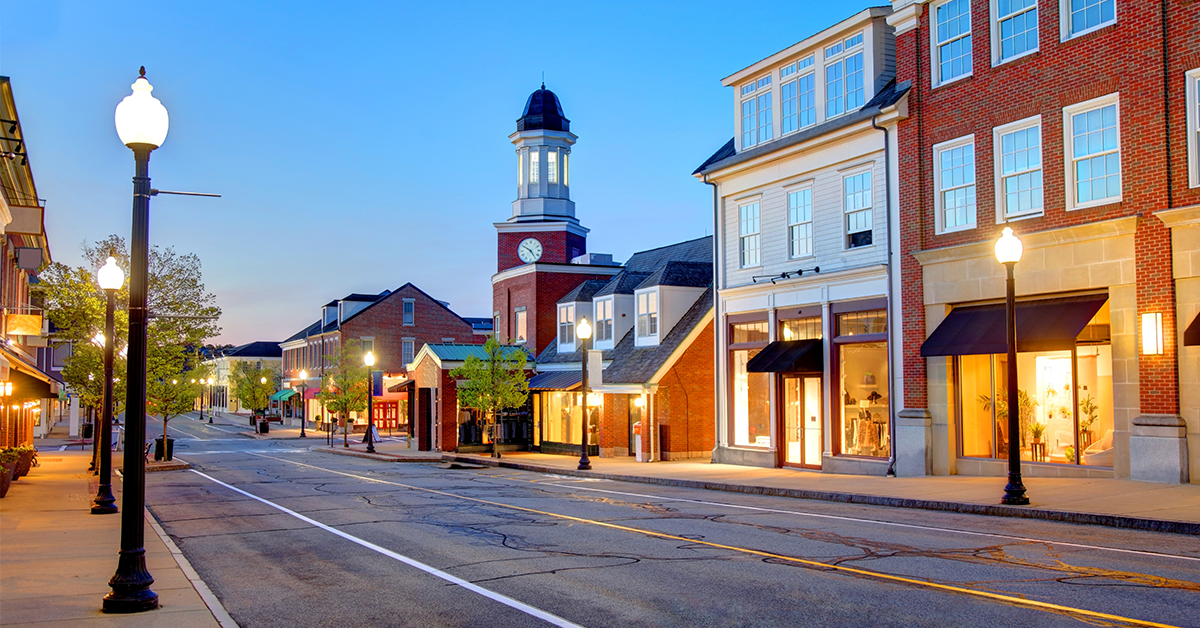Market Value & Replacement Cost
July 1, 2022
If you own commercial property, choosing a property insurance policy that fits your specific needs is important. A wide variety of policy options are available at different prices that cover an assortment of reimbursement options. Although there are policies that offer a large amount of financial coverage, depending on the type of property that will be insured, it may make more financial sense to pick a policy that still offers adequate coverage while having lower premiums.
Commercial properties can be covered in a variety of ways, and a number of factors can determine whether your property’s value goes up or down each year. Knowing how much your property is worth and obtaining the insurance policy that both protects you and suits your financial needs is important. The following are descriptions of common types of policies and valuation, and the costs that they generally cover.
Market Value
Simply put, market value describes the estimated amount that a property would sell for on the date of valuation. Any land included in a commercial property is also a part of its market value. The term market value can be used interchangeably with open market value, fair market value or fair value.
A number of factors are considered when a property’s market value is appraised, some of which cannot be influenced by the buyer, seller or appraiser. These include the location of the property, capitalization rates, rent growth rate, the general state of the real estate market and more.
Market value is most often used when buying or selling a property. However, it may also be examined when determining the type of insurance policy to place on a property, or the amount of compensation in the case of a loss.
Replacement Cost
Replacement or reconstruction cost is a type of insurance that covers the cost to replace or repair a building with materials of the same or comparable quality. For the purposes of coverage—and unlike market value—replacement cost policies do not include the value of any land and is determined based on the amount needed to hire contractors and purchase materials to repair a building or construct a replacement.
Theoretically, the replacement cost of a commercial property should be lower than its market value, as the replacement cost only has to take building materials and labor into consideration when determining compensation. However, the costs of materials and labor can fluctuate. This, along with the numerous factors that contribute to market value, makes it possible for the replacement cost of a property to be higher than its market value.
A replacement cost policy offers a large amount of financial protection in the case of a loss, as it does not take depreciation into account when determining compensation. However, it is usually more expensive than other types of coverage and, as a result, may not make sense for every property. Without continuous maintenance and renovations to a property, the value of a building will generally depreciate over time. However, the cost of materials and labor to replace a lost property is generally more fixed. Because of this, it may be better to opt for a less expensive plan that still protects the operations of your business.
Actual Cash Value
Actual cash value policies function in a similar way to replacement cost in that it covers the cost to replace or repair a property. However, under an actual cash value policy there is a deduction in compensation to account for the depreciated value of the original property.
A property covered under an actual cash value policy will be rebuilt or repaired using modern construction techniques and materials. The difference between this cost and the depreciated value of the original property is only covered under a replacement cost policy and not actual cash value.
Actual cash value policies generally have lower premiums than replacement cost plans, and they may make more sense for particular types of properties. For example, a store located in a very old building in a popular urban environment will not depreciate as quickly as a new office building located in a business park. The store is more location-sensitive and does not require a specific type of building to operate, so an actual cash value policy and its lower premiums may make more financial sense than a replacement cost plan.
Functional Replacement Cost
Another less expensive option for property coverage is functional replacement cost. This type of policy is used when a functionally equivalent building can be found to replace the original property at a lower cost than building a replacement. A building’s functional replacement cost is lower than the replacement cost, which results in a reduction in the amount of coverage and correspondingly smaller premiums.
Functional replacement cost coverage can also be used to repair a partially damaged property with less expensive materials, such as replacing a wall with drywall instead of plaster.
The main reason for using functional replacement cost coverage would be to save money with lower premiums, so it may be a good option for properties that use expensive materials that are not necessary to the function of the property or for buildings with intangible value that is not relevant to their commercial function.
Which Type of Coverage Best Fits Your Needs?
The value of any piece of commercial property changes constantly. Knowing your property’s value and obtaining the policy that best suits your needs will safeguard your current and future assets. Contact Robertson Ryan & Associates today to appraise your property’s value and learn more about which type of policy is best for you.
Source: Zywave

